Rich oil, tangy yogurt, and fresh lemon were made for one another in this lemon olive oil cake. Don’t skip the sweet and zippy lemon icing!
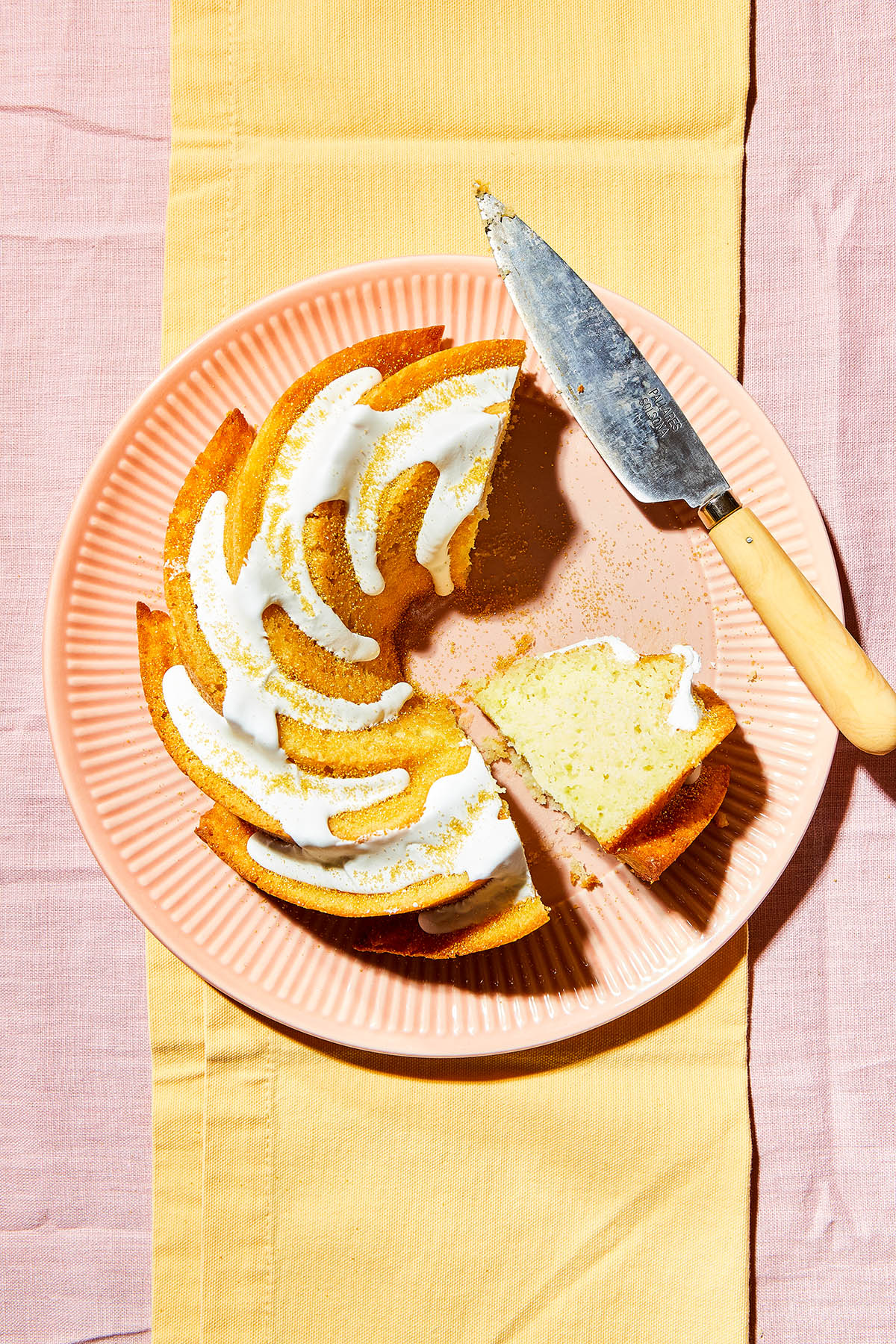
Photography by Kelly Neil
This post first appeared on September 10, 2014 and was last updated February 27, 2022.
Lemon olive oil cake is so easy cake to make! With its beautiful, citrus-forward flavour, it will be a showstopper on your family table (and no one will ever know it came together in one bowl in under 20 minutes).
You need a 10-cup capacity Bundt pan for this recipe as we haven’t tested the cake with anything but. We recommend Nordic Ware Bundt pans as they are remarkably robust, non-stick, and simply beautiful.
We chose cake flour for this recipe as it’s milled finer than all-purpose flour. Cake flour generally yields a lighter, fluffier cake with a higher rise. If you don’t have cake flour you can use all-purpose flour in its place.
We made a thick lemon icing for the top of this lemon cake using white food colouring. If you haven’t heard of, or tried using white food colouring, it’s a game changer for cake and cookie icing! Powdered sugar alone doesn’t give you the true white that white food colouring can add. Using it is totally optional, but if you’re curious, you can find it online or at Michaels. We also dusted the top of this cake with gold sugar, which can be purchased in the same places.
[feast_advanced_jump_to]

Use the JUMP TO RECIPE button at the top, or scroll to the bottom of the post to see the printable recipe card with full ingredient measurements and complete instructions.
Ingredients
For The Lemon Olive Oil Cake

- Greek Yogurt — We use full-fat thick Greek yogurt for this recipe. You can try it with lower-fat yogurt, however, the texture of the cake will probably change.
- Olive Oil — We chose a generic grocery-store brand extra virgin olive oil for this cake. Your choice of olive oil will determine the resulting flavour of the cake, however, it’s well-balanced with the lemon so don’t use an expensive oil.
- Lemon — Fresh lemon zest and juice will yield the best flavour. Don’t use bottled juice if you don’t have to.
- Cake & Pastry Flour — Cake flour generally yields a lighter, fluffier cake with a higher rise. If you don’t have cake flour you can use all-purpose flour in its place.
For The Lemon Glaze

- White Food Colouring — Powdered sugar alone doesn’t give you the true white that white food colouring can add. Using it is totally optional, but if you’re curious, you can find it online or at Michaels.
Method
Make The Lemon Olive Oil Cake
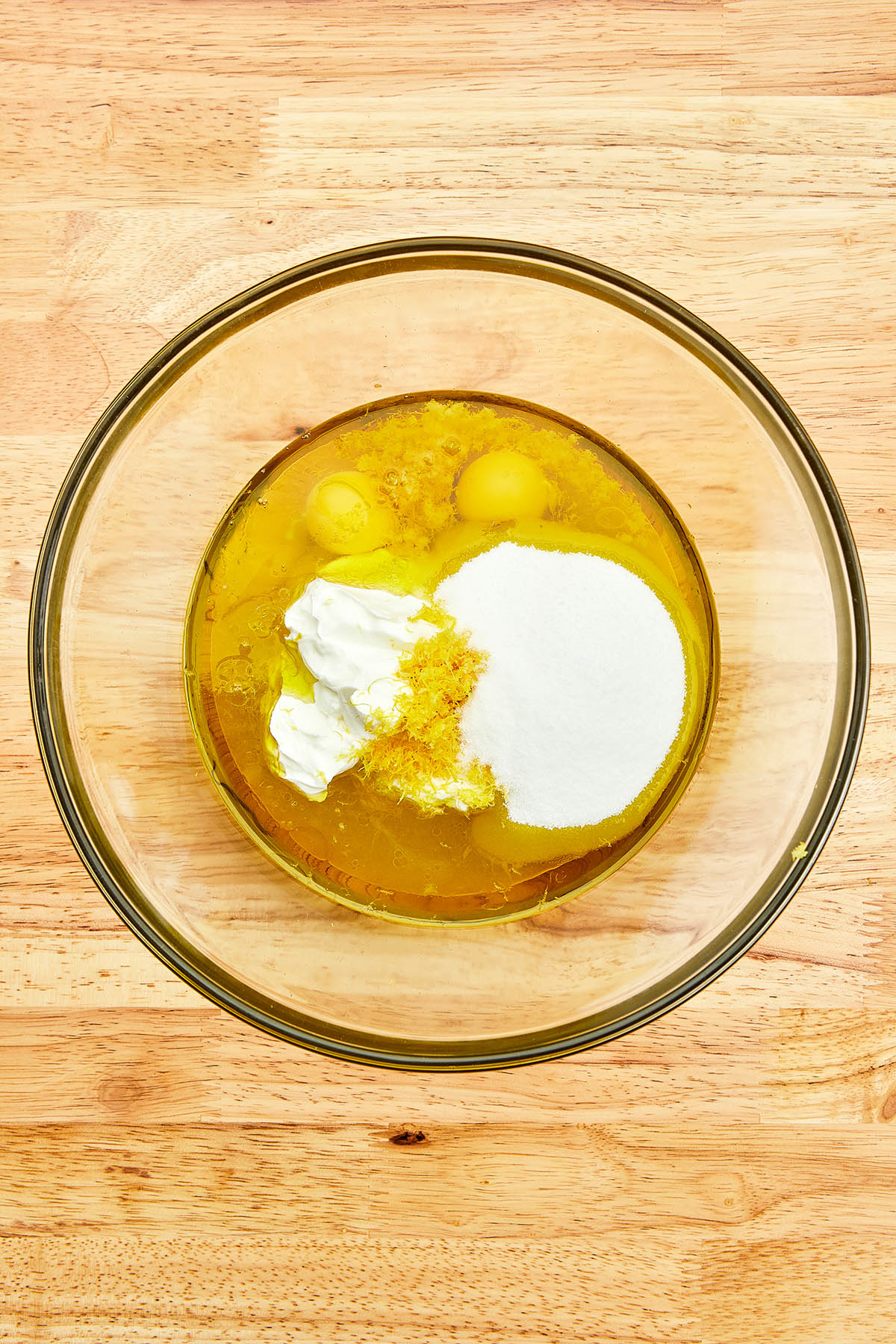
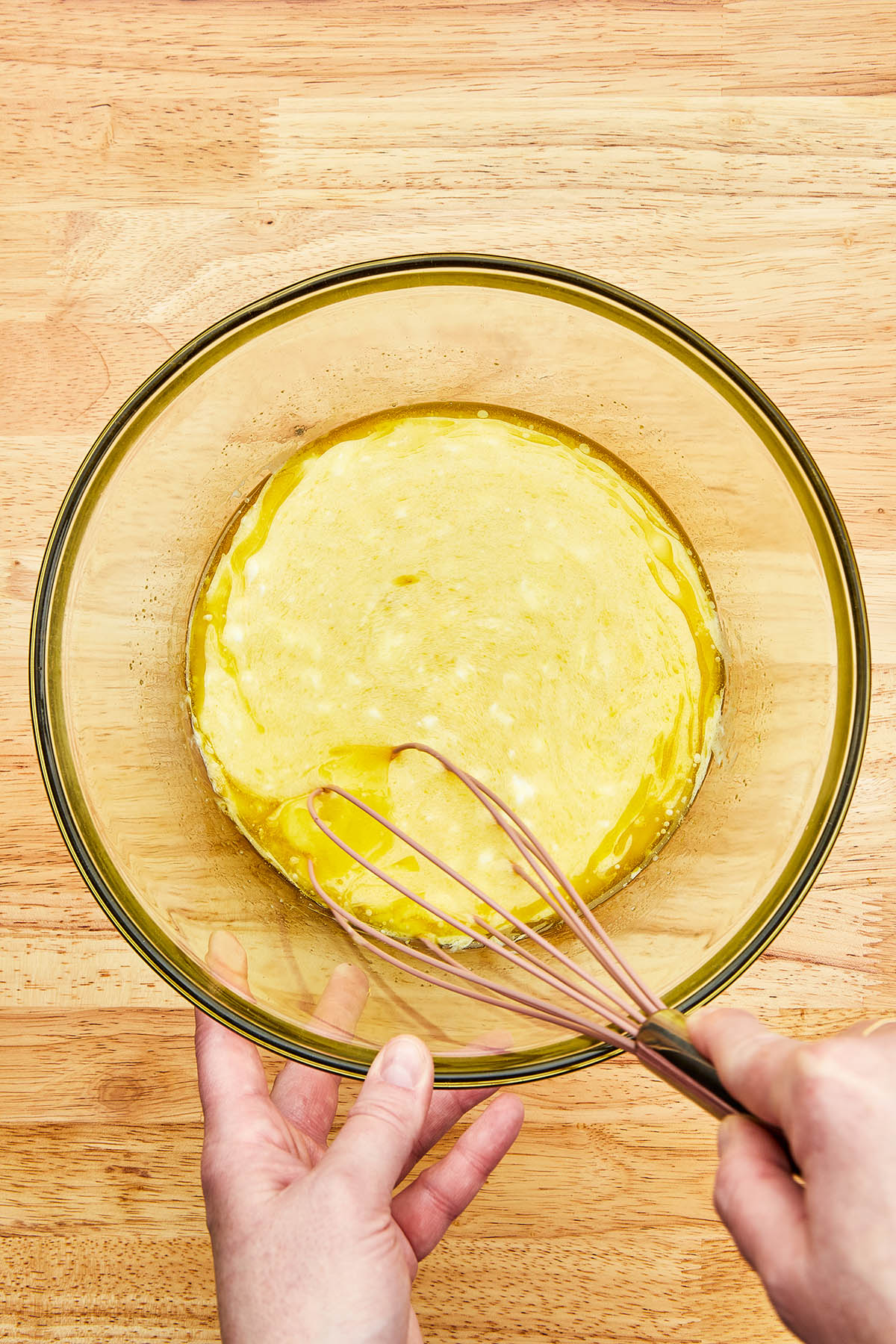


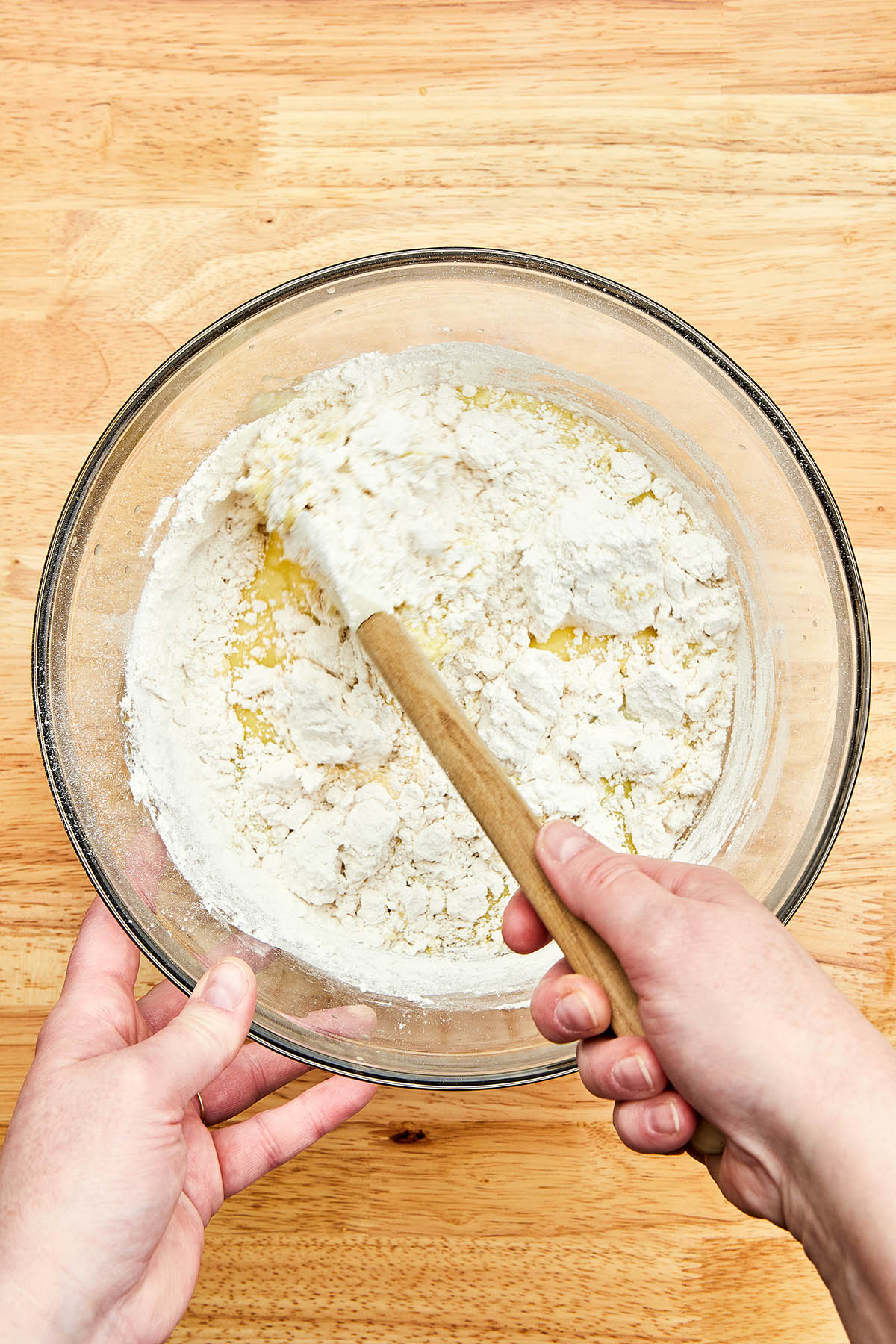



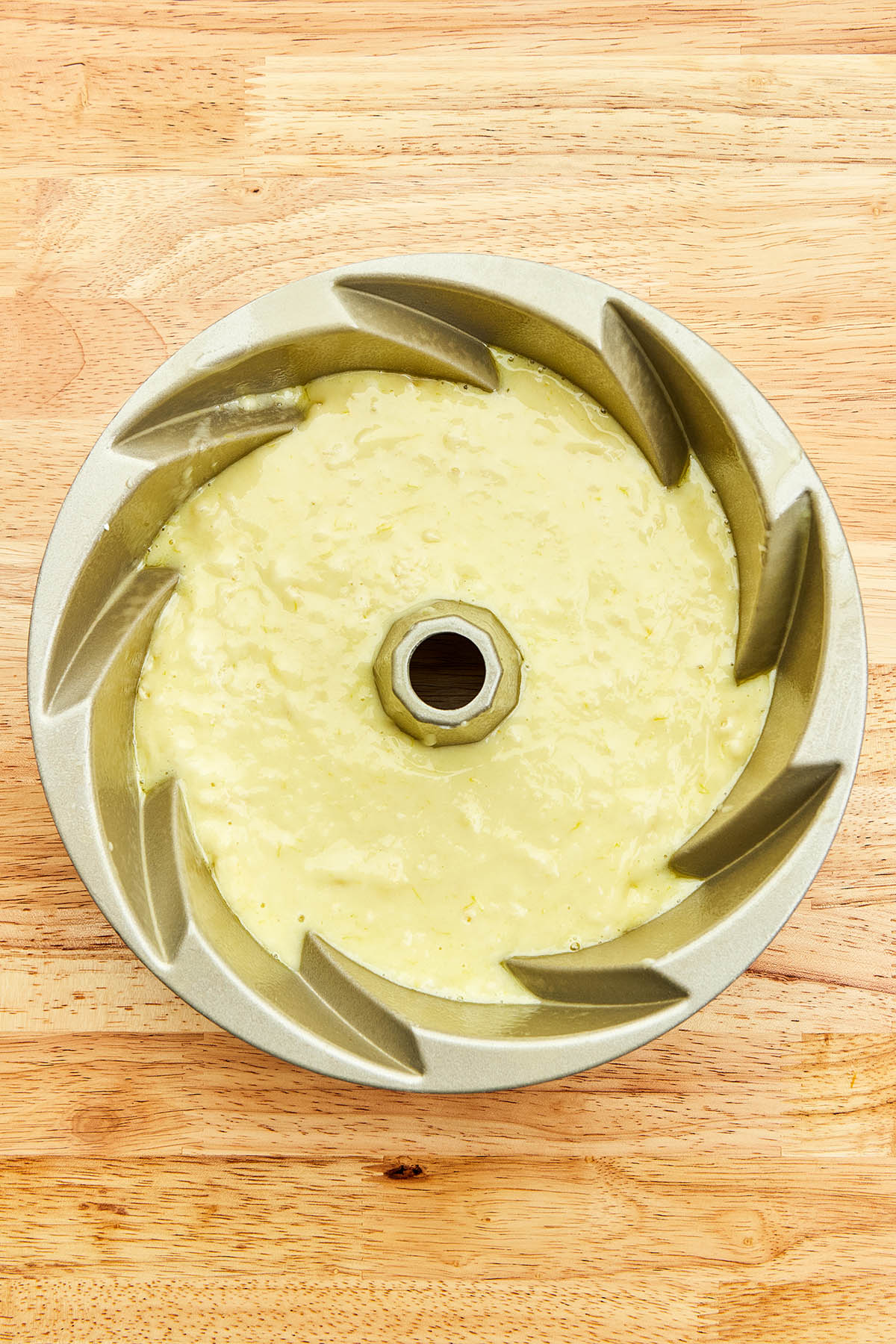
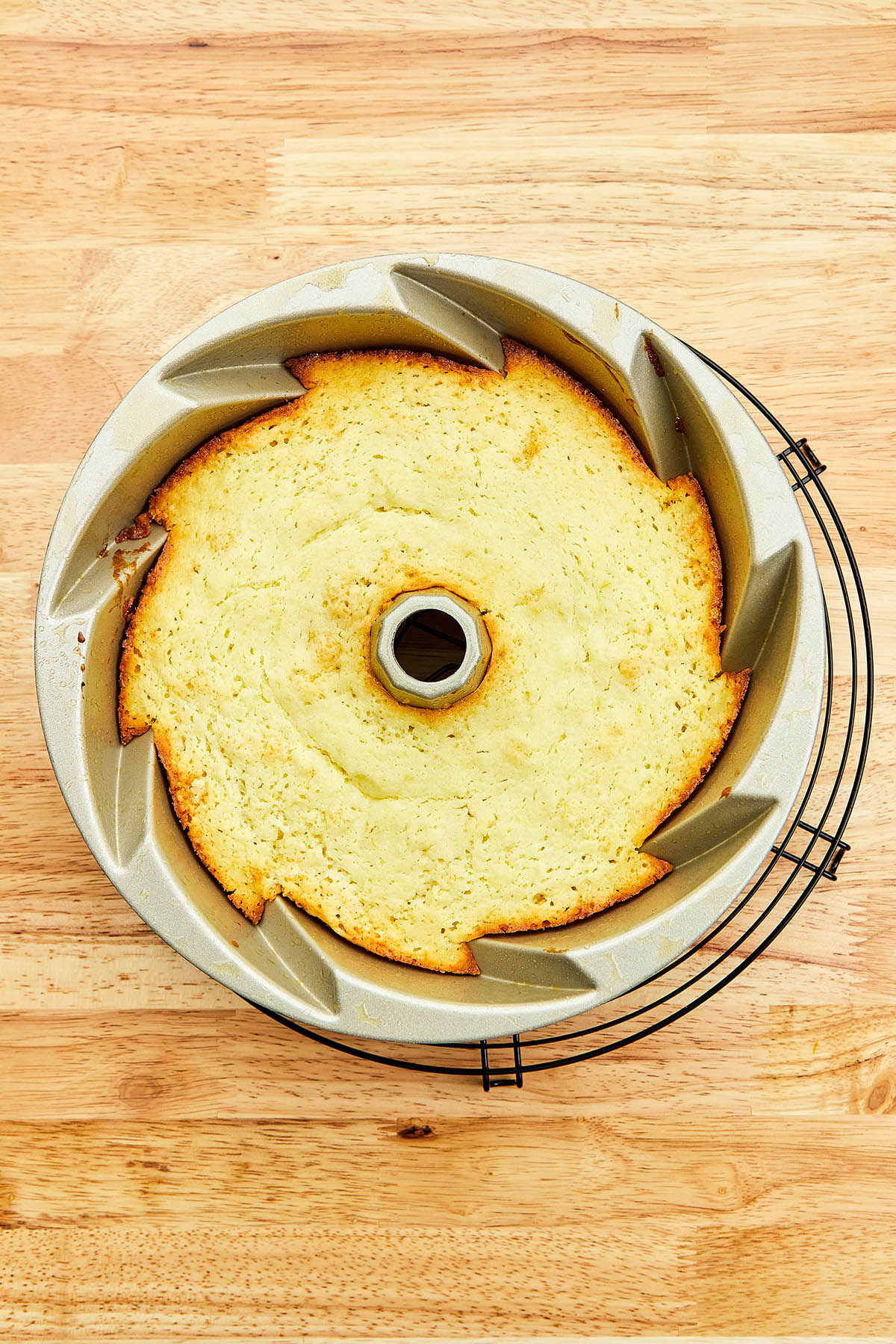

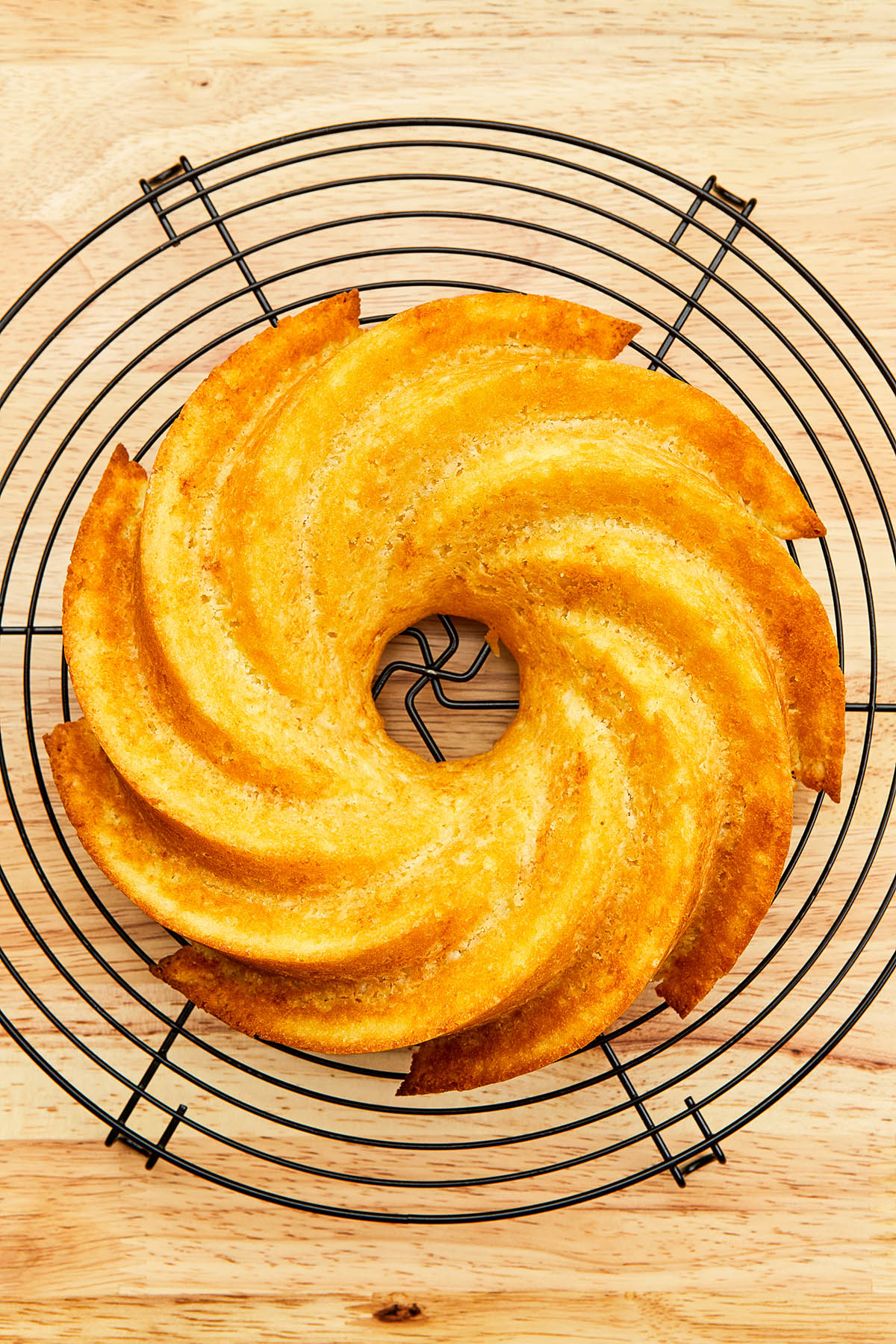
Make The Lemon Glaze

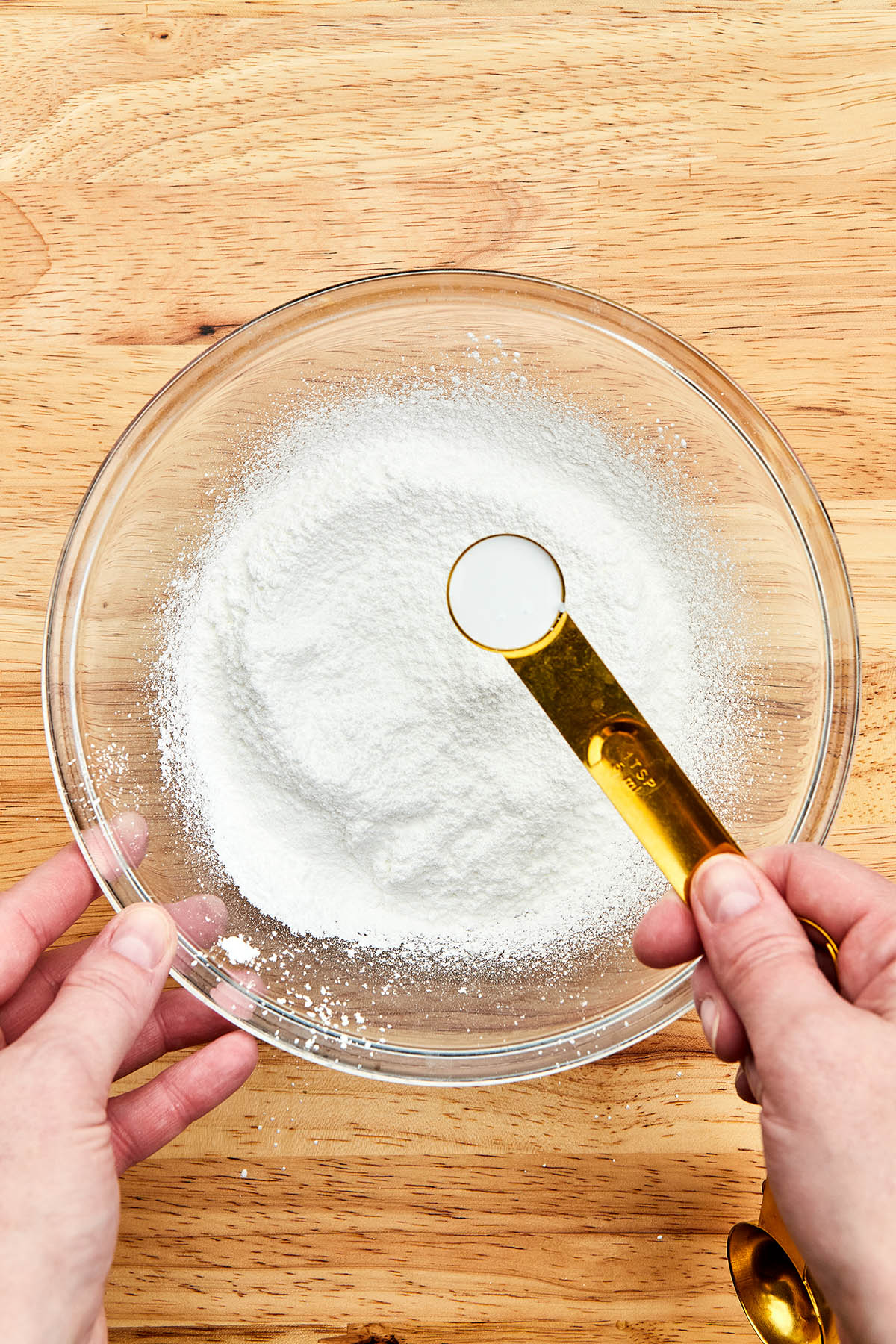
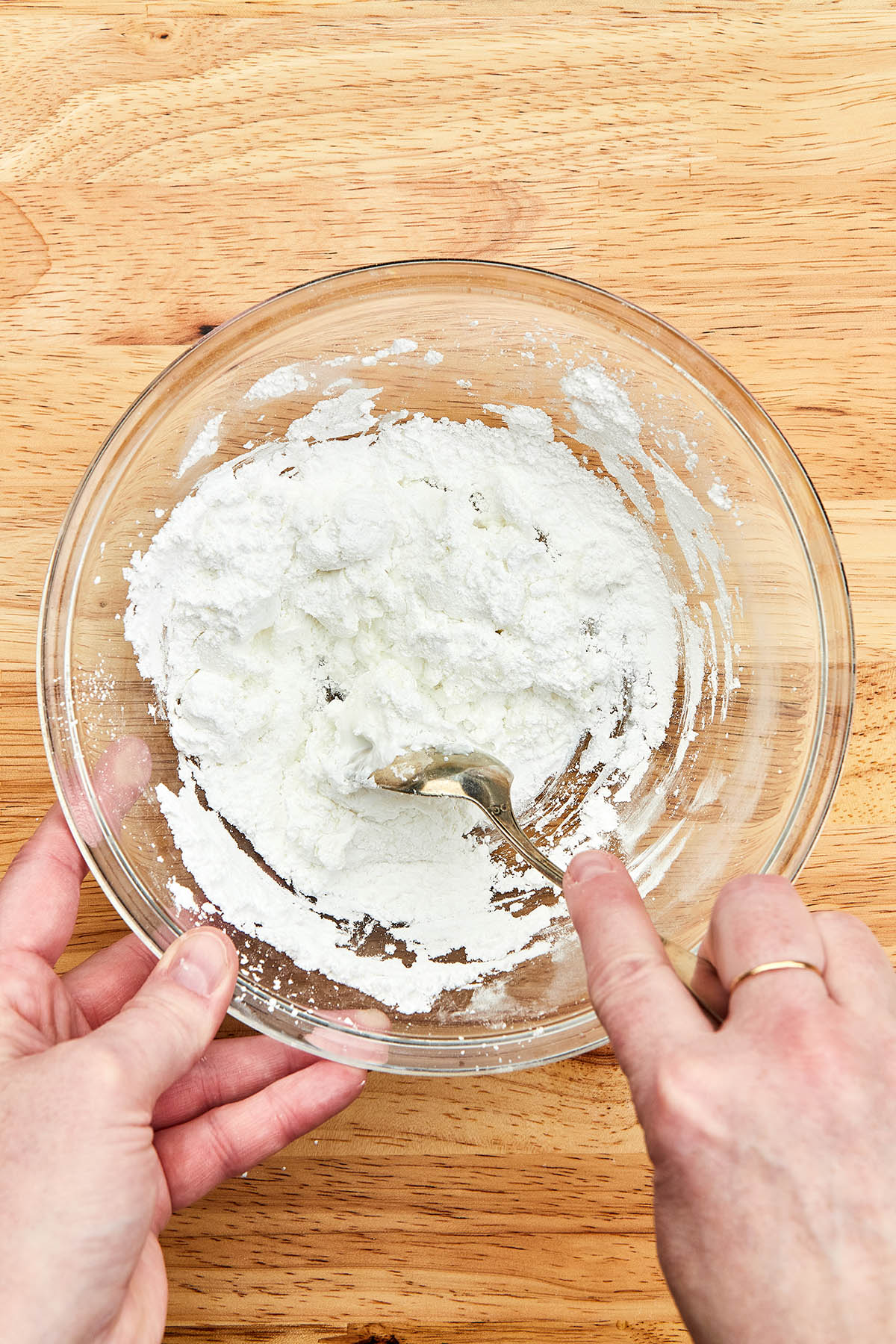



Tips & Notes
- Full-fat Greek yogurt is the best choice for a super moist cake. See below for substitutions.
- We don’t recommend substituting the olive oil as it lends a definitive flavour to this Greek yogurt cake. We use extra virgin olive oil.
- Room temperature eggs are easier to mix and will emulsify with the olive oil faster than eggs cold from the refrigerator.
- Cake & pastry flour is milled more finely than all-purpose flour. It has a lower protein content, and is also bleached. These components yield a lighter, fluffier cake with a higher rise. We recommend using it if you can.
- We use 10-cup non-stick Nordic Ware Bundt pans. This is not a sponsored post, it’s just our Bundt standard. We haven’t tested this lemon yogurt cake using regular cake tins.
- If you don’t have baking spray, lightly grease your pan with olive oil using a pastry brush. Dab any pools of oil in the bottom of the pan with a paper towel before you pour in the lemon cake batter.
- If you haven’t heard of, or tried using white food colouring, it’s a game changer for cake and cookie icing! Powdered sugar alone doesn’t give you the true white that white food colouring can add. Using it is totally optional, but if you’re curious, you can find it online or at Michaels.
- The lemon icing should be thicker than you think. If it runs quickly off the end of a spoon, it will run too quickly over your cake. Thicker glaze will have a chance to settle on the cake before it runs down to the serving platter. To thicken the glaze add more powdered sugar.
How To Store Lemon Olive Oil Cake
- Store your Greek yogurt cake, loosely covered with aluminum foil on the counter for up to two days. After that, place it in the fridge. If your house or climate is super hot or humid, store the cake in the fridge directly after serving.
- We don’t recommend storing this cake in airtight containers. The lack of air makes the glaze sort of wet and runny which does not look good.
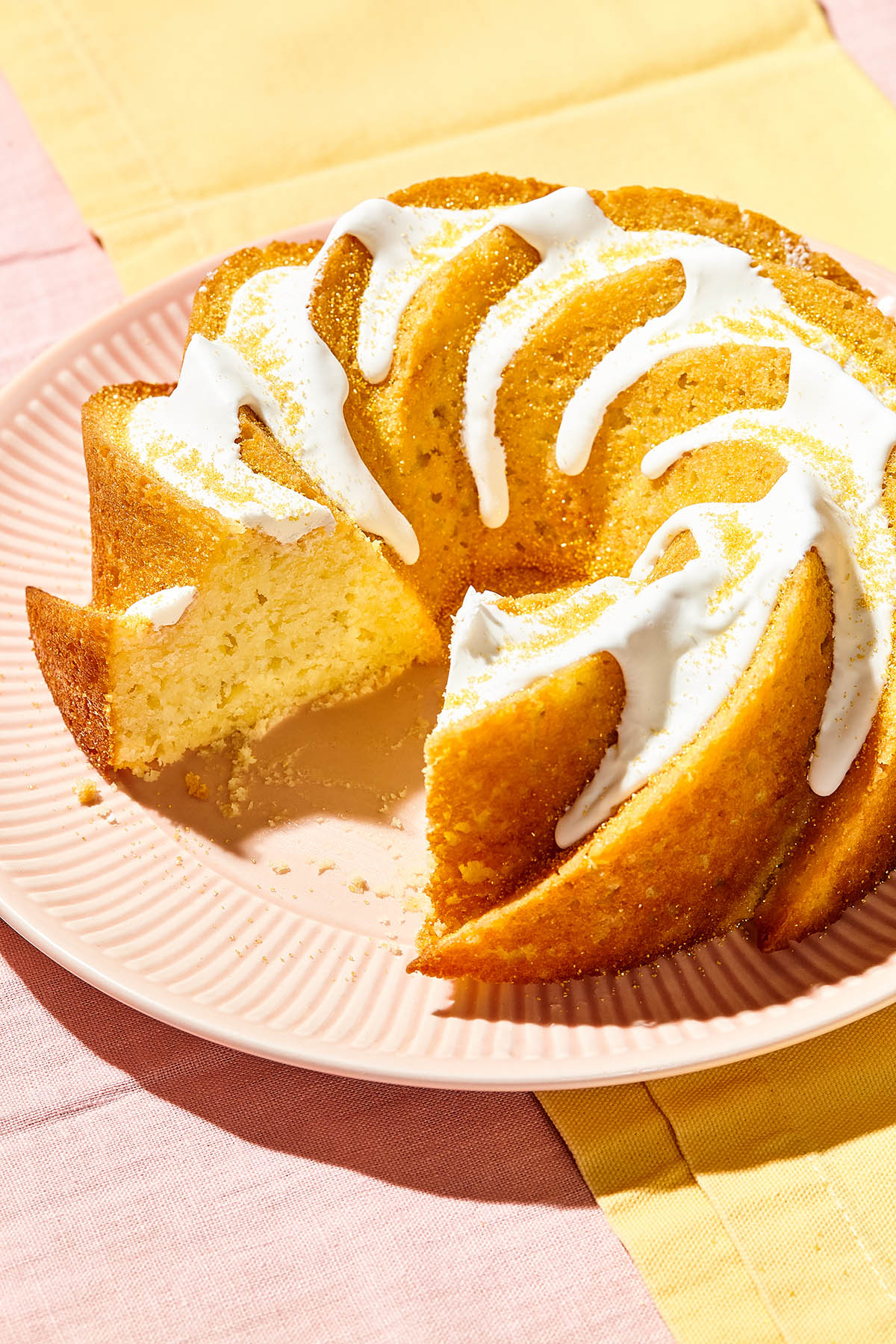
Substitutions
- You can use full-fat sour cream in place of the Greek yogurt. We think ricotta would also work, however, we haven’t tested this.
- If you don’t have cake & pastry flour, you can substitute all-purpose flour. Keep in mind there’s a risk your lemon Bundt cake could turn out a bit drier if using all-purpose.
- Fresh squeezed orange or grapefruit juice are great substitutes for lemon.

More Lemon Recipes
Lemon Blueberry Crepe Cake
Strawberry Lemonade Sangria
Lemon Curd Ice Cream (No-Churn)
Lemon Elderflower Popsicles
If you make this recipe, let us know by tagging @baked_theblog + #bakedtheblog on Instagram! We love to feel like we’re in the kitchen with you.
Recipe
Lemon Olive Oil Cake With Greek Yogurt

Rich oil, tangy yogurt, and fresh lemon were made for one another in this lemon olive oil cake. Don't skip the sweet and zippy lemon icing!
Ingredients
For The Lemon Olive Oil Cake
- 1 cup (226g) full-fat Greek yogurt
- ¾ cup (188ml) olive oil
- 2 large eggs, room temperature
- Zest and juice of one large lemon—approximately ¼ cup (63ml) juice
- 1 cup (200g) sugar
- 1 ½ cups (225g) cake flour
- 1 tablespoon baking powder
- ½ teaspoon salt
For The Lemon Glaze
- 1 cup (120g) powdered sugar
- ½ teaspoon white food colouring (optional)
- 1 to 2 tablespoons lemon juice
Instructions
Make The Lemon Olive Oil Cake
Preheat the oven to 350°F (180ºC). Lightly spray the inside of a 10-cup non-stick Bundt pan with baking spray and set aside.
In a large bowl, whisk together the Greek yogurt, olive oil, eggs, lemon zest, lemon juice, and sugar until well combined.
Sift the flour and baking powder into the bowl. Add the salt. Use a rubber spatula or wooden spoon to gently fold the wet and dry ingredients together. Stop when the flour is almost mixed in—a few streaks of flour are ok!
Scoop the cake batter into the prepared Bundt pan avoiding the middle column of the pan. Use the rubber spatula to gently smooth the top of the batter. Place the tin in the oven and bake the cake for 37 to 40 minutes or until the top is light golden brown and springs back when pressed with a fingertip.
Remove the cake from the oven. Let it cool for 10 minutes on a wire rack, then carefully flip the cake from the tin onto the wire rack. Cool the cake completely before glazing.
Make The Glaze
Sift the powdered sugar into a bowl and add the white food colouring if using. Stir the food colouring around to distribute it through the sugar. Add lemon juice, by the ½ teaspoon, until the glaze is thick and runs slowly off the end of a spoon like honey. You want the glaze to be quite thick! Pour the glaze over the cooled cake the add any decorations you like. We sprinkled gold sugar over the top of our cake. Allow the glaze to set for 10 minutes before slicing and serving.
Notes
Full-fat Greek yogurt is the best choice for a super moist cake. See below for substitutions.
We don't recommend substituting the olive oil as it lends a definitive flavour to this Greek yogurt cake. We use extra virgin olive oil.
Room temperature eggs are easier to mix and will emulsify with the olive oil faster than eggs cold from the refrigerator.
Cake & pastry flour is milled more finely than all-purpose flour. It has a lower protein content, and is also bleached. These components yield a lighter, fluffier cake with a higher rise. We recommend using it if you can.
We use Nordic Ware Bundt pans. This is not a sponsored post, it's just our Bundt standard. We haven’t tested this recipe using regular cake tins.
If you don't have baking spray, lightly grease your pan with olive oil using a pastry brush. Dab any pools of oil in the bottom of the pan with a paper towel before you pour in the lemon cake batter.
If you haven't heard of, or tried using white food colouring, it's a game changer for cake and cookie icing! Powdered sugar alone doesn't give you the true white that white food colouring can add. Using it is totally optional, but if you're curious, you can find it online or at Michaels.
The lemon icing should be thicker than you think. If it runs quickly off the end of a spoon, it will run too quickly over your cake. Thicker glaze will have a chance to settle on the cake before it runs down to the serving platter. To thicken the glaze add more powdered sugar.
How To Store Lemon Olive Oil Cake
Store the cake, loosely covered with aluminum foil on the counter for up to two days. After that, place it in the fridge. If your house or climate is super hot or humid, store the cake in the fridge directly after serving.
We don’t recommend storing this cake in an airtight container. The lack of air and the moisture in the cake will make the icing melt and run.
Substitutions
You can use full-fat sour cream in place of the Greek yogurt. We think ricotta would also work, however, we haven't tested this.
If you don’t have cake & pastry flour, you can substitute all-purpose flour. Keep in mind there's a risk it could turn out a bit drier if using all-purpose.
Fresh squeezed orange or grapefruit juice are great substitutes for lemon.
Nutrition Information:
Yield:
10Serving Size:
1Amount Per Serving: Calories: 118Total Fat: 2gSaturated Fat: 0gTrans Fat: 0gUnsaturated Fat: 2gCholesterol: 38mgSodium: 288mgCarbohydrates: 19gFiber: 1gSugar: 4gProtein: 5g
This is an approximation of the nutrition offered in this recipe, and is created using a nutrition calculator.
The post Lemon Olive Oil Cake With Greek Yogurt appeared first on Baked.
